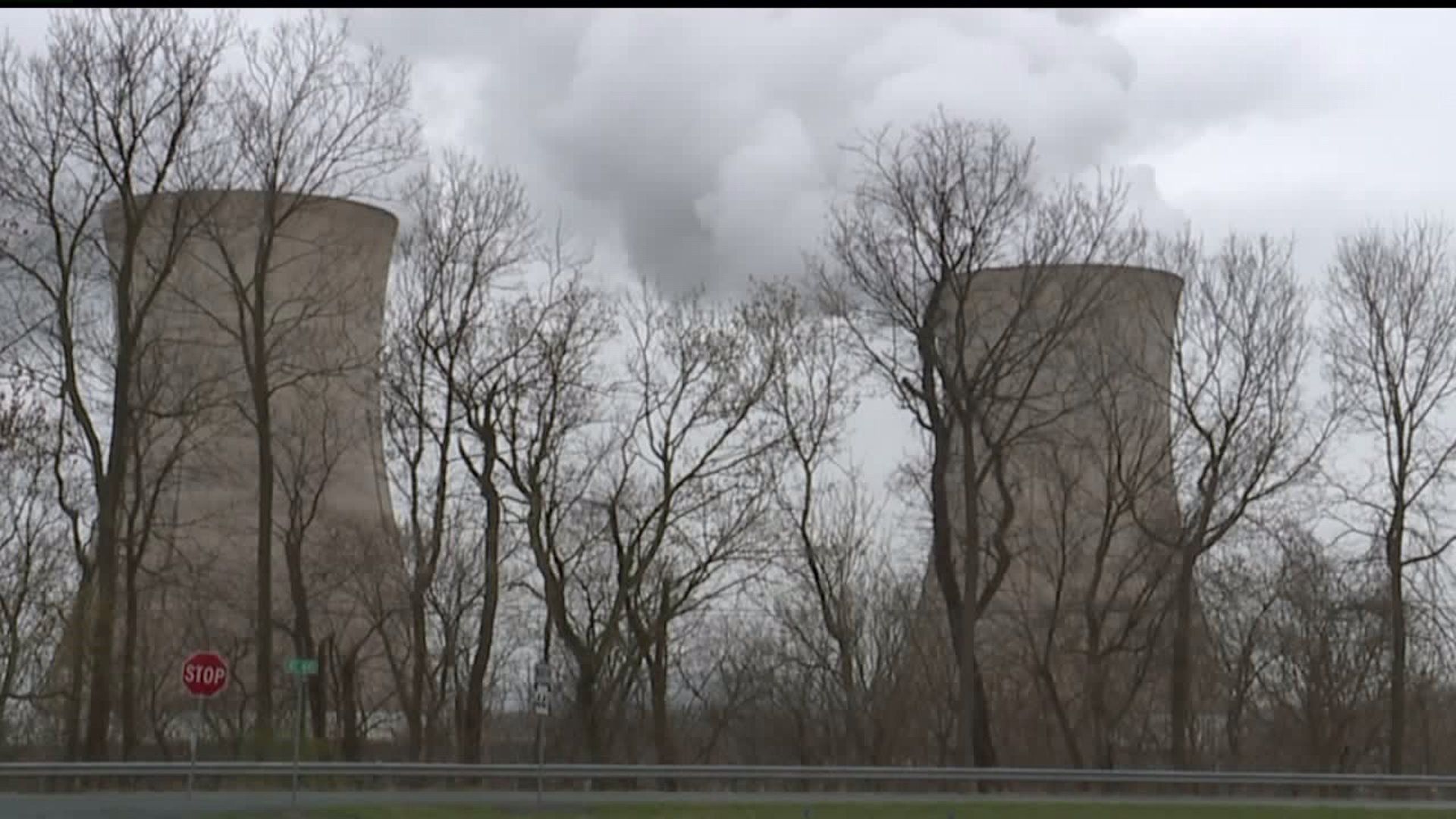"Anytime that you’d have a business coming here that would create these kinds of jobs, we would be tripping over each other to make sure we get them here. So this is no reason to change that,” said Rep. Tom Mehaffie.
16,000 jobs across the state— that’s how many Pennsylvanians are employed by nuclear power plants.
Just one of the many reasons Rep. Mehaffie says nuclear energy needs to be added to the Pennsylvania Alternative Energy Portfolio Standards— which is why he is introducing the change in House Bill 11.
“We have something special here. We have something that is a carbon free generator of electricity, and we really need to recognize why we should do that, because they have such a great environmental attribute,” said Mehaffie.
Right now, Three Mile Island is the first plant scheduled to close in September.
On Friday, Exelon, which owns and operates Three Mile Island, released its decommissioning report with the nuclear regulatory commission, outlining a plan for that closure.
That plan includes moving used nuclear materials by the end of 2022, and dismantling the stations cooling towers starting in 2074.
In recent years, the plant has lost a lot of money, and if legislation is not passed before the fall, Three Mile Island would close for good.
“This is irreversible. We can’t make a bad decision. If we do make a bad decision, we can’t turn around and recreate these power plants. We want to make sure we’re doing the right thing and understand that closing down these plants down could be detrimental in the very near future or far future,” said Mehaffie.
But the group Citizens Against Nuclear Bailouts says the decommissioning report is misleading.
Steve Kratz, a spokesperson for the group, says Three Mile Island may not be profitable, but Exelon as a whole brought in more than $640 million in 2018.
He says the company is trying to use legislation to try and subsidize the loss at Three Mile Island specifically, which will only hurt Pennsylvanians in the long run.
“Really what you’re looking at too is small businesses, manufacturers, school districts, large manufacturers like steel mills, they use a lot of electricity, and when you start multiplying the additional cost, you’re not talking about $40-50 a year, you’re talking millions of dollars a year, and that’s a severe competitive disadvantage for Pennsylvania. It’s going to drive jobs away,” said Kratz.
A series of of public hearings will be held over the next month to further discuss changing the act.
The first one is on Monday at 11 at the Capitol.

